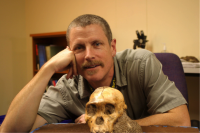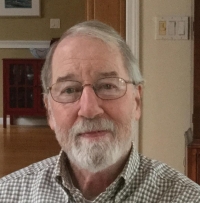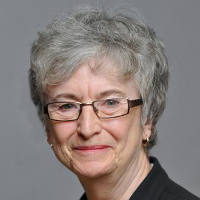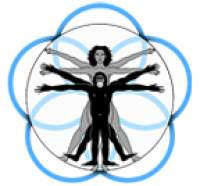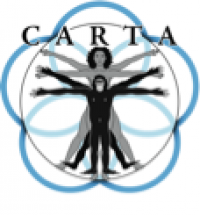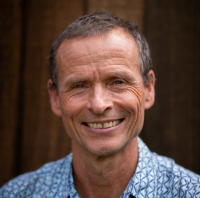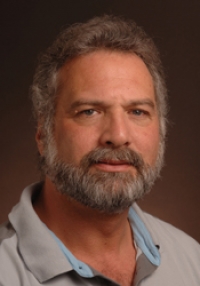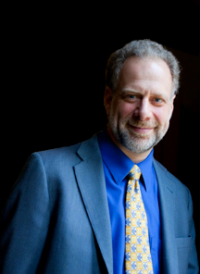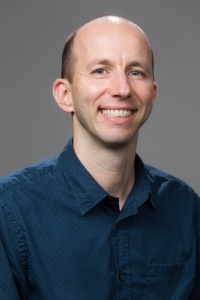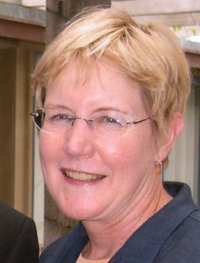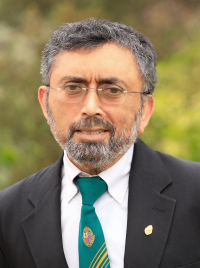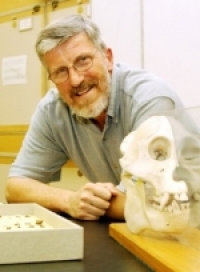Origins of Genus Homo
Biographical Sketches: Co-Chairs
Duke University
Steven Churchill is a Professor and past Chair of the Department of Evolutionary Anthropology at Duke University. He is also an Honorary Reader in the Evolutionary Studies Institute and Centre for Excellence in PalaeoSciences at the University of the Witwatersrand. Dr. Churchill received a B.S. from Virginia Tech and an M.A. and Ph.D. from the University of New Mexico before joining the faculty at Duke in 1995. He is a paleontologist who studies the fossil record of human evolution, especially that of early members of our genus (Homo) that lived between about two million to ten thousand years ago.
Harvard University
G. Philip Rightmire passed away on April 11, 2025 at the age of 82. A Research Associate in the Department of Human Evolutionary Biology at Harvard University, Rightmire was a biological anthropologist with research interests in skeletal biology, morphometrics, paleoanthropology, and human evolution. He carried out extensive studies of fossil remains from localities in Africa, Europe, and Asia and is particularly concerned with interpreting the Plio-Pleistocene record of genus Homo. His projects centered on Middle Pleistocene hominins, the evolutionary significance of the assemblage from Dmanisi (Georgian Caucasus), the paleobiology of Homo erectus, and the identification of likely antecedents to this species in Africa.
Biographical Sketches: Speakers
University College London
Leslie Aiello is Professor Emerita, University College London and President Emerita of the Wenner-Gren Foundation for Anthropological Research. Her academic interests focus on the evolution of human adaptation as well as on the broader issues of evolutionary theory, life history, energetics, and the evolution of the brain and cognition. She has degrees from the University of California Los Angeles and from the University of London. She spent the majority of her academic career at University College London (1976-2005) and returned to the US to head the Wenner-Gren Foundation for Anthropological Research (2005-2017). She was president of The American Association of Biological Anthropologists (AABA) from 2018-2019 and currently serves on the Board of the Smithsonian’s National Museum of Natural History. Throughout her career she has been active with the media in the public dissemination of science and has served as consultant and advisor to a variety of international anthropological institutions and initiatives.
UC San Diego
Pascal Gagneux is CARTA's Executive Co-Director, a Professor of Pathology and Anthropology, and the Department Chair of Anthropology at UC San Diego. He is interested in the evolutionary mechanisms responsible for generating and maintaining primate molecular diversity. The Gagneux laboratory studies cell-surface molecules in closely related primates species. His focus is on glycans, the oligosaccharides attached to glycolipids and glycoproteins of the surfaces of every cell and also secreted into the extra-cellular matrix. Gagneux's laboratory is exploring the roles of molecular diversity in protecting populations from pathogens as well as potential consequences for reproductive compatibility. Dr. Gagneux’s interest is in how glycan evolution is shaped by constraints from endogenous biochemistry and exogenous, pathogen-mediated natural selection, but could also have consequences for sexual selection. Dr. Gagneux has studied the behavioral ecology of wild chimpanzees in the Taï Forest, Ivory Coast, population genetics of West African chimpanzees, and differences in sialic acid biology between humans and great apes with special consideration of their differing pathogen regimes. In 2011, while Associate Director of CARTA, Dr. Gagneux helped to establish a graduate specialization in Anthropogeny at UC San Diego. This wholly unique graduate specialization is offered through eight participating graduate programs in the social and natural sciences at UC San Diego.
Arizona State University
William "Bill" Kimbel (d. 2022) was a renowned paleoanthropologist specializing in Plio-Pleistocene hominid evolution in Africa. He received his Ph.D. from Kent State University. He was Associate Curator and Head of Physical Anthropology at the Cleveland Museum of Natural History (1981-1985) before joining the Institute of Human Origins (IHO) in Berkeley, California, in 1985. In 1997, IHO relocated to Arizona State University, where Kimbel served as its Director and Virginia M. Ullman Professor of Natural History and the Environment in the School of Human Evolution and Social Change. For more than 25 years, Kimbel conducted research on Australopithecus and early Homo in Africa; Neandertals in the Middle East; the evolution of hominin skull form and function; and concepts of biological systematics as applied to paleoanthropological problems. From 1990, he co-directed or directed research at the Hadar hominin site in the Afar region of Ethiopia. Kimbel was elected Fellow of the American Association for the Advancement of Science in 2005.
Harvard University
Daniel Lieberman is the Edwin M. Lerner II Professor of Biological Sciences in the Department of Human Evolutionary Biology at Harvard University. He received degrees from Harvard and Cambridge University, and taught at Rutgers University and George Washington University before joining the Harvard Faculty in 2001. Lieberman’s research, which focuses on the evolution of human physical activity, combines experimental biomechanics, anatomy, and physiology both in the lab and in the field, and he has conducted research in Africa for almost 30 years, and now also works in Mexico. He loves teaching and has published over 150 papers, many in journals such as Nature, Science, and PNAS. He is best known for his research on the evolution of the head and on the evolution of running, which he also enjoys doing himself. He has published two books, The Evolution of the Human Head (2011), and The Story of the Human Body: Evolution, Health and Disease (2013). He forthcoming book is on the evolution of human physical activity.
Duke University
Herman Pontzer is Associate Professor of Evolutionary Anthropology at Duke University. Through lab and field research, he investigates the physiology of humans and apes to understand how ecology, lifestyle, diet, and evolutionary history affect metabolism and health. He is also interested in how ecology and evolution influence musculoskeletal design and physical activity. Field projects focus on small-scale societies, including hunter-gatherers and subsistence farmers, in Africa and South America. Lab research focuses on energetics and metabolism, including the development of new methods for measuring energy expenditure, physiology, and metabolic health in the field.
UC San Diego
Margaret Schoeninger is Distinguished Professor Emerita of Anthropology at UC San Diego, a Research Archaeologist in the Glenn Black Laboratory of Archaeology at Indiana University, and Emerita Co-Director of CARTA. She has done fieldwork in North America, Mexico, Pakistan, India, Kenya, and Tanzania as well as laboratory research on carbon, nitrogen, and oxygen stable isotope ratio analysis in biological tissues and food component analysis of traditional foods. Her major interest is in the evolution of human diet particularly as it informs our understanding of the appearance and evolution of the human lineage.
UC San Diego School of Medicine
Ajit Varki is a Distinguished Professor of Medicine and Cellular & Molecular Medicine, Emeritus Co-Director of CARTA, Emeritus Co-Director of the Glycobiology Research and Training Center at UC San Diego, and Adjunct Professor at the Salk Institute. He received basic training in physiology, medicine, biology, and biochemistry at the Christian Medical College (CMC), Vellore, The University of Nebraska, and Washington University in St. Louis. He also has formal training and board certification in internal medicine, hematology, and oncology. Varki is the executive editor of Essentials of Glycobiology (Cold Spring Harbor Press, 4th Edition, 2022) and is recipient of a MERIT award from the NIH, and an American Cancer Society Faculty Research Award. Honorific elections include the American Academy of Arts and Sciences, the National Academy of Medicine, the American Society for Clinical Investigation, and the Association of American Physicians. He is also recipient of the three highest honors in his field, the Karl Meyer Award of the Society for Glycobiology, the International Glycoconjugate Organization Award and the Rosalind Kornfeld Award for Lifetime Achievement in Glycobiology. He is recognized for creating the first major open access research journal (J. Clin. Invest., 1996) as well as the first major open access textbook (Essentials of Glycobiology, 2009). He was honored with the Old Cottonian of Eminence Award at the 150th Anniversary of Bishop Cotton Boys School, Bangalore, India, (2015) as well as a Distinguished Faculty Medal and Oration at his medical school alma mater, CMC, Vellore. Significant past appointments include: Co-Head, UC San Diego Division of Hematology-Oncology; President of the Society for Glycobiology; Editor-in-Chief of the Journal of Clinical Investigation; Interim Director of the UC San Diego Cancer Center, President of the American Society for Clinical Investigation, and UC San Diego Associate Dean for Physician-Scientist Training. Varki's research interests are focused on a family of cell surface sugars called sialic acids, and their roles in biology, evolution and disease. Currently, active projects are relevant to the roles of sialic acids in microbial infectivity, the regulation of the immune response, the progression and spread of tumors, aging, and unique aspects of human evolution. His group is particularly intrigued to find multiple interrelated differences in sialic acid biology between humans and our closest evolutionary cousins, the "great apes." These differences are a signature of the events that occurred during the last few million years of human evolution, and appear to be relevant to understanding several aspects of the current human condition, both in health and disease. Varki’s book, Denial (Twelve, Hachette Books, 2013), explores a novel "Mind Over Reality Transition” (MORT) theory that denying reality and personal mortality was a key step in allowing the emergence of a full theory of mind, and in the origin of our species.
University of Missouri-Columbia
Carol Ward earned her B.S. in Anthropology and Zoology from the University of Michigan in 1986 and her Ph.D. in Functional Anatomy and Evolution from the Department of Cell Biology and Anatomy at the Johns Hopkins School of Medicine in 1991. She joined the faculty at the University of Missouri in 1991 in a joint appointment in the Departments of Anthropology and Anatomy. In 2006, she moved full time to the Department of Pathology and Anatomical Sciences where she is a Professor and Director of Anatomical Sciences in that department’s Integrative Anatomy group. Ward has studied the evolution of Miocene hominoids as well as Pliocene and Pleistocene hominins. She has done paleontological fieldwork in Kenya and Hungary. She is co-director of the West Turkana Paleo Project through the National Museums of Kenya, with whom she has worked at the Australopithecus anamensis site of Kanapoi and will begin fieldwork at Lomekwi in 2016. Her work has been funded by the National Science Foundation, Leakey Foundation, Wenner-Gren Foundation, and the University of Missouri. She is a Fellow of the American Association for the Advancement of Science, holds affiliations with the National Museums of Kenya, Institute of Human Origins, Cleveland Museum of Natural History, and the Evolutionary Studies Institute in South Africa, is a member of the African Rift Valley Research Consortium, and has won several teaching awards.
George Washington University
Bernard Wood is The University Professor of Human Origins and Professor of Human Evolutionary Anatomy at George Washington University. Dr. Wood is a medically qualified paleoanthropologist who practiced as a surgeon before moving into full-time academic life in 1972. In 1982, he was appointed to the S.A. Courtauld Chair of Anatomy in The University of London, and in 1985 he moved to The University of Liverpool to the Derby Chair of Anatomy and to the Chairmanship of the Department of Human Anatomy and Cell Biology. He was appointed the Dean of The University of Liverpool Medical School in 1995 and served as Dean until his move to Washington in the fall of 1997. When he was still a medical student, he joined Richard Leakey's first expedition to what was then Lake Rudolf in 1968 and he has remained associated with that research group, and pursued research in paleoanthropology, ever since. His research centers on increasing our understanding of human evolutionary history by developing and improving the ways we analyze the hominin fossil record, and on using the principles of bioinformatics to improve the ways we store and collate data about the hominin fossil record. He has a special interest in the recognition of species and genera in the hominin fossil record, and he collaborates with researchers interested in the evolution of non-hominins in the interests of ensuring that we analyze hominin evolution in a proper comparative context. He has written one of the monographs in the series on the Koobi Fora site, and publishes papers on paleoanthropological topics. He is also the editor of the Wiley-Blackwell Encyclopedia of Human Evolution.
